Boost your metabolism and work your whole body with this eight-move HIIT workout for beginners
If you want to get started with HIIT, try this program that provides a full-body workout in just 20 minutes
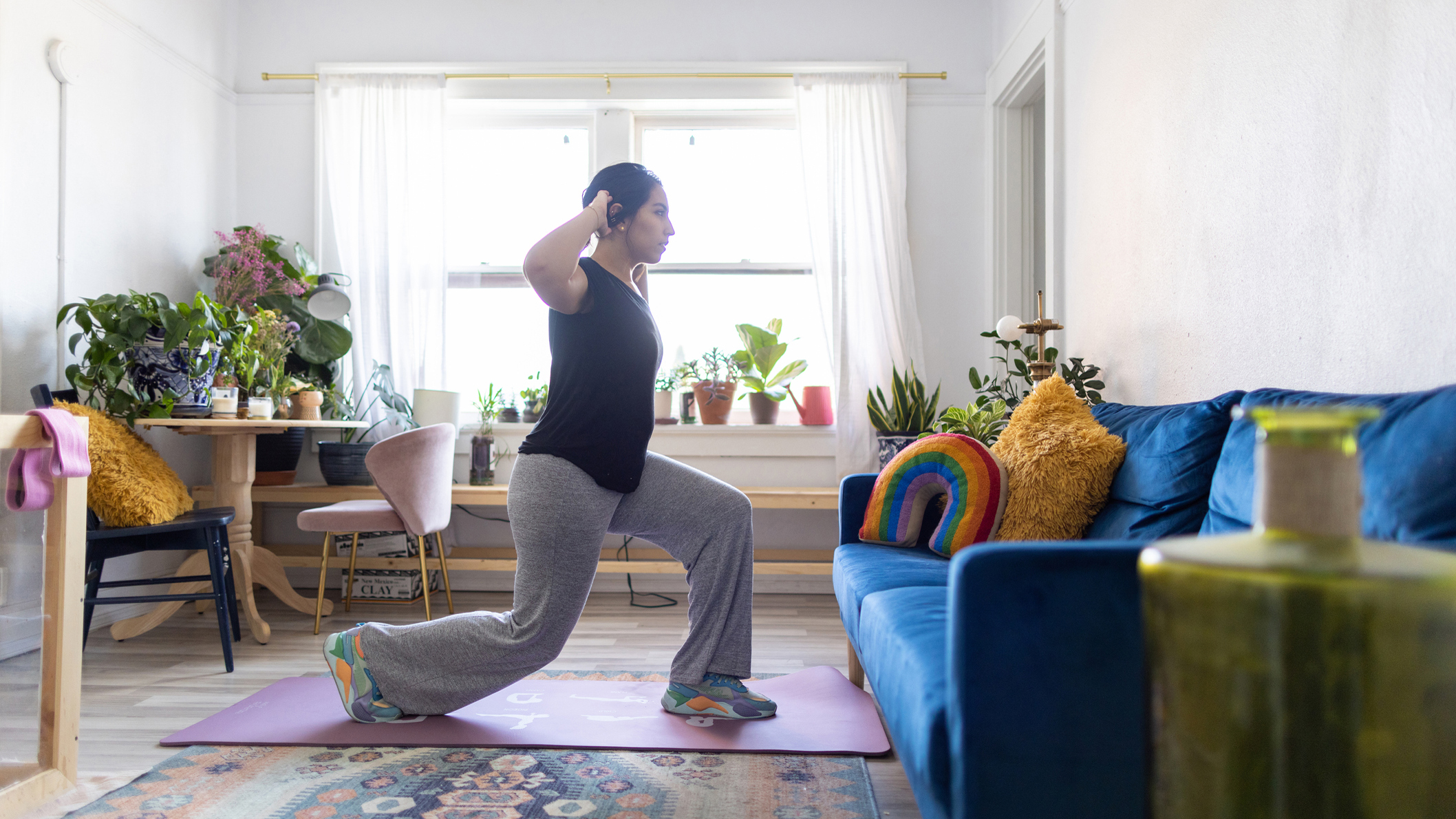
High-intensity interval training (HIIT) can look intimidating to beginners, but we’ve got the perfect routine for anyone taking their first shot at it. There are just eight moves to master in this workout and no equipment needed, which means you can rip through this sequence at home or in a quiet corner of the gym.
HIIT involves exercising intensely for short periods, then resting briefly before resuming training. It's high-energy, so it can help you burn through calories in a short space of time, which is why people often turn to HIIT workouts for fat loss. This style of workout can also help you build strength and endurance—and it could even lower your blood pressure.
Christianne Wolff, personal trainer and author of The Body Rescue Plan, gave us her top moves to introduce beginners to HIIT.

Christianne Wolff is a personal trainer and the author of The Body Rescue Plan. She has been working in fitness since qualifying as a personal trainer in 1996, and co-owns The Body Rescue Fitness and Well-being centres with her husband.
How to do the workout
Clear a space before you start and make sure you warm up. You will need to repeat each exercise, at a high intensity, for 20 seconds, then rest for 10 seconds before jumping into the next move. Do all of the eight exercises to complete one round. Aim to do three to four rounds in total, depending on your fitness level, with one minute of rest in between.
Remember to adapt the routine to suit you. If you're finding the pace too challenging, lengthen the rest period between exercises.
1. Lunge Punch
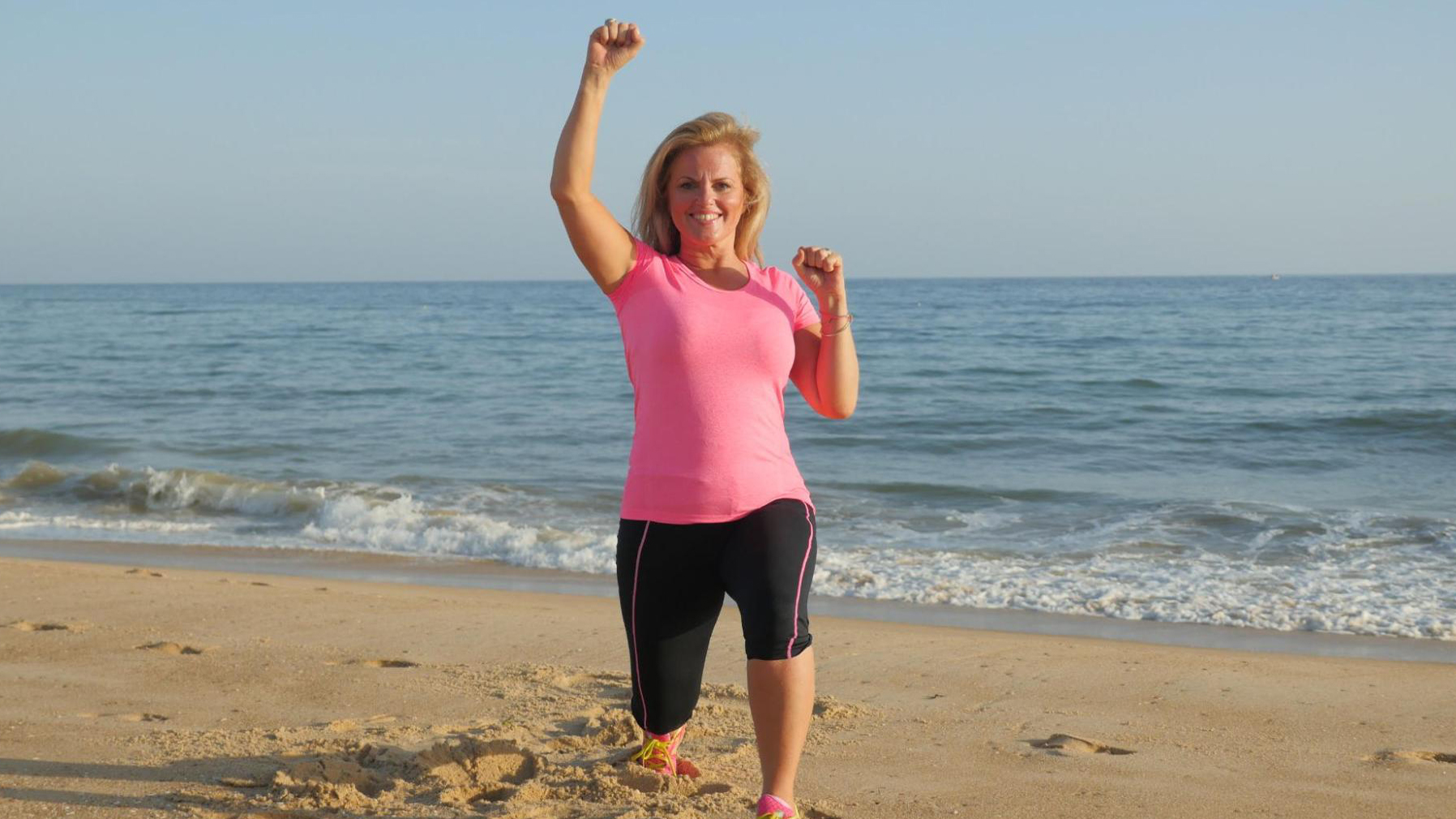
Stand with your right leg forward and left leg back in a lunge position, then do two punches in the air. Swap your legs over then repeat the punches. Don´t go deeper than a 90 degree angle with the legs and ensure your front knee stays in line with the toe.
2. Tricep dip on the floor
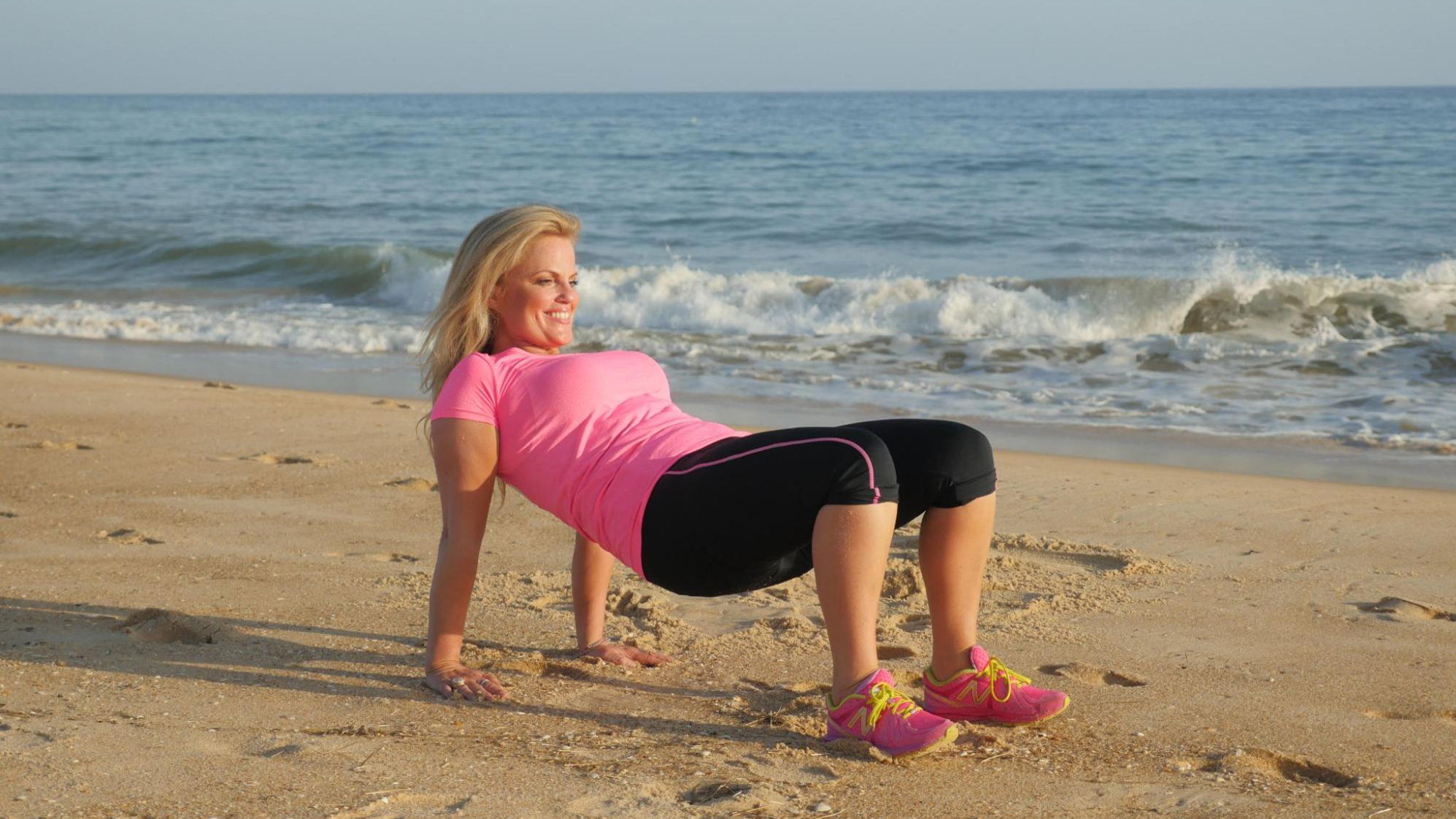
Sit on the ground with your knees bent and hands positioned behind you, directly under your shoulders. Push through your arms and lift your bottom up, then bend your arms at your elbows directly behind you, so you dip down towards the floor, but don't go all the way. Press back up to straight arms then repeat.
Start your week with achievable workout ideas, health tips and wellbeing advice in your inbox.
3. Lunge walk
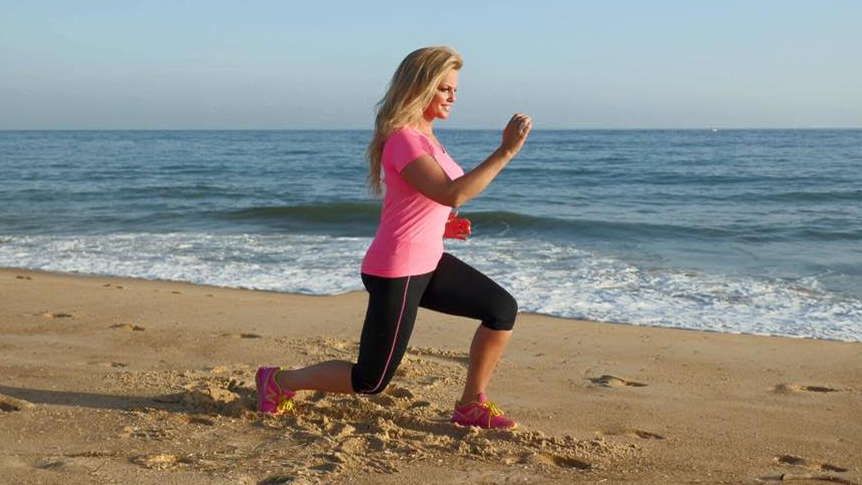
Stand up and move into the lunge position, then stride forward and sink into a lunge on the other leg. Use your core muscles to control the balance. If your knees don’t like lunges, try not to bend too deeply.
4. Sit and twist
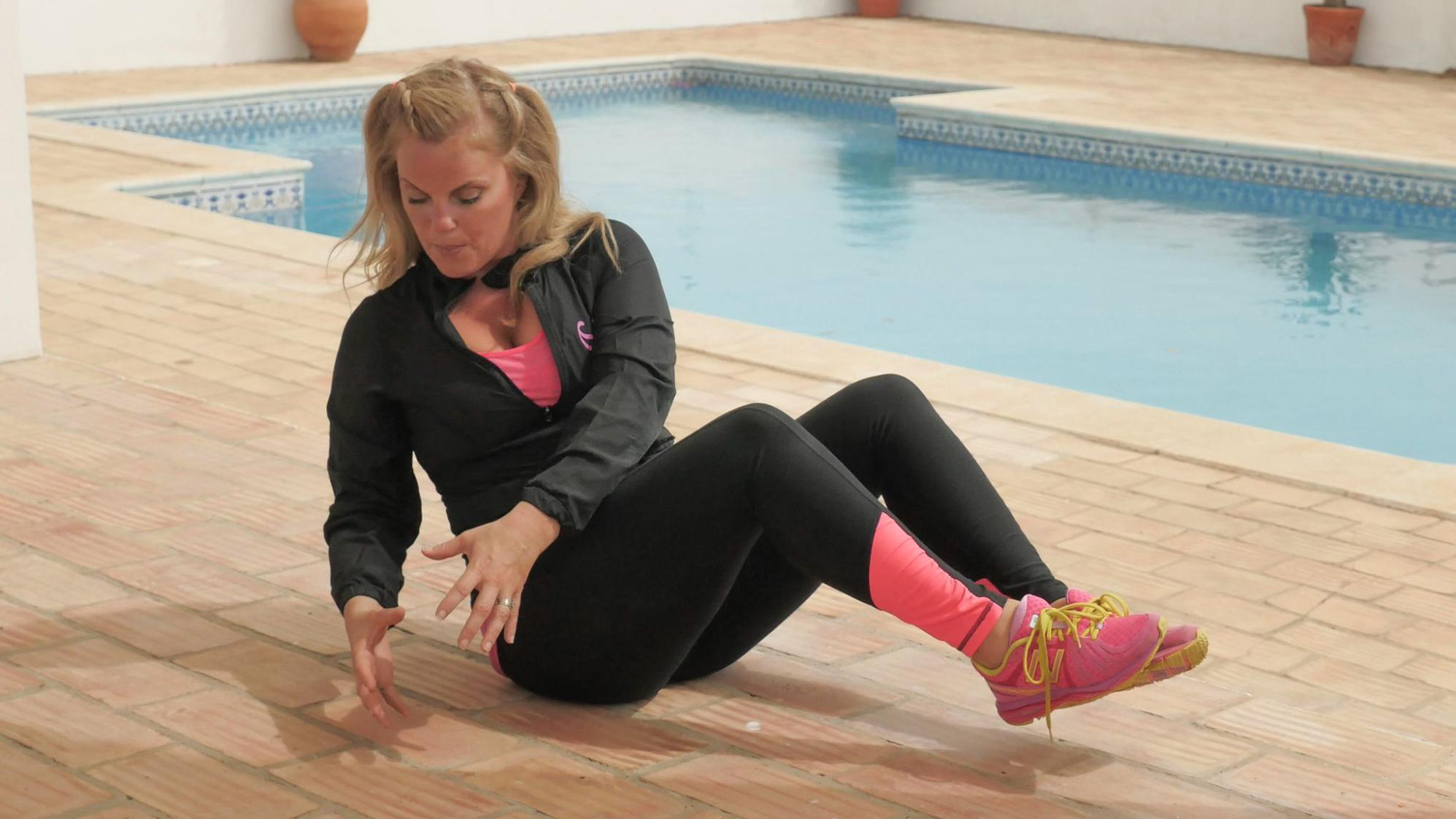
Sit on the floor with your knees bent. Try hovering your feet off the ground (but if that’s too hard, you can keep them on the floor) and twist from your torso as if you are holding a ball, to the right and then the left. Make sure you are twisting from your whole body and not just your shoulders.
5. Mountain climbers
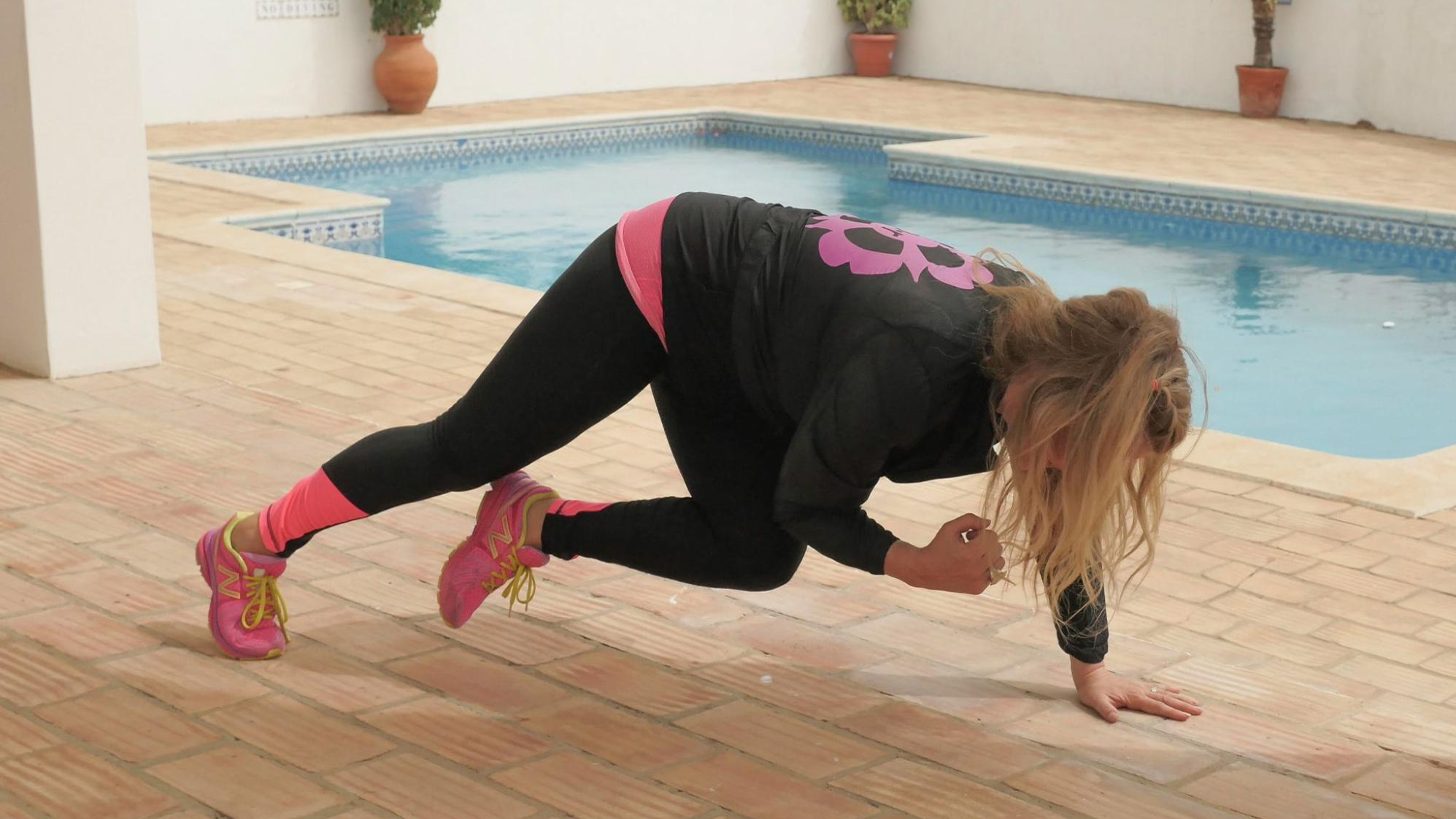
Start in a high plank position. Then bring your right knee up towards your left arm, trying to keep your hips down. Repeat on the other side and move as quickly as you can.
Once you have perfected this, try and lift your arm and bring your right elbow in towards the left knee, as in the photo.
6. Toe touches
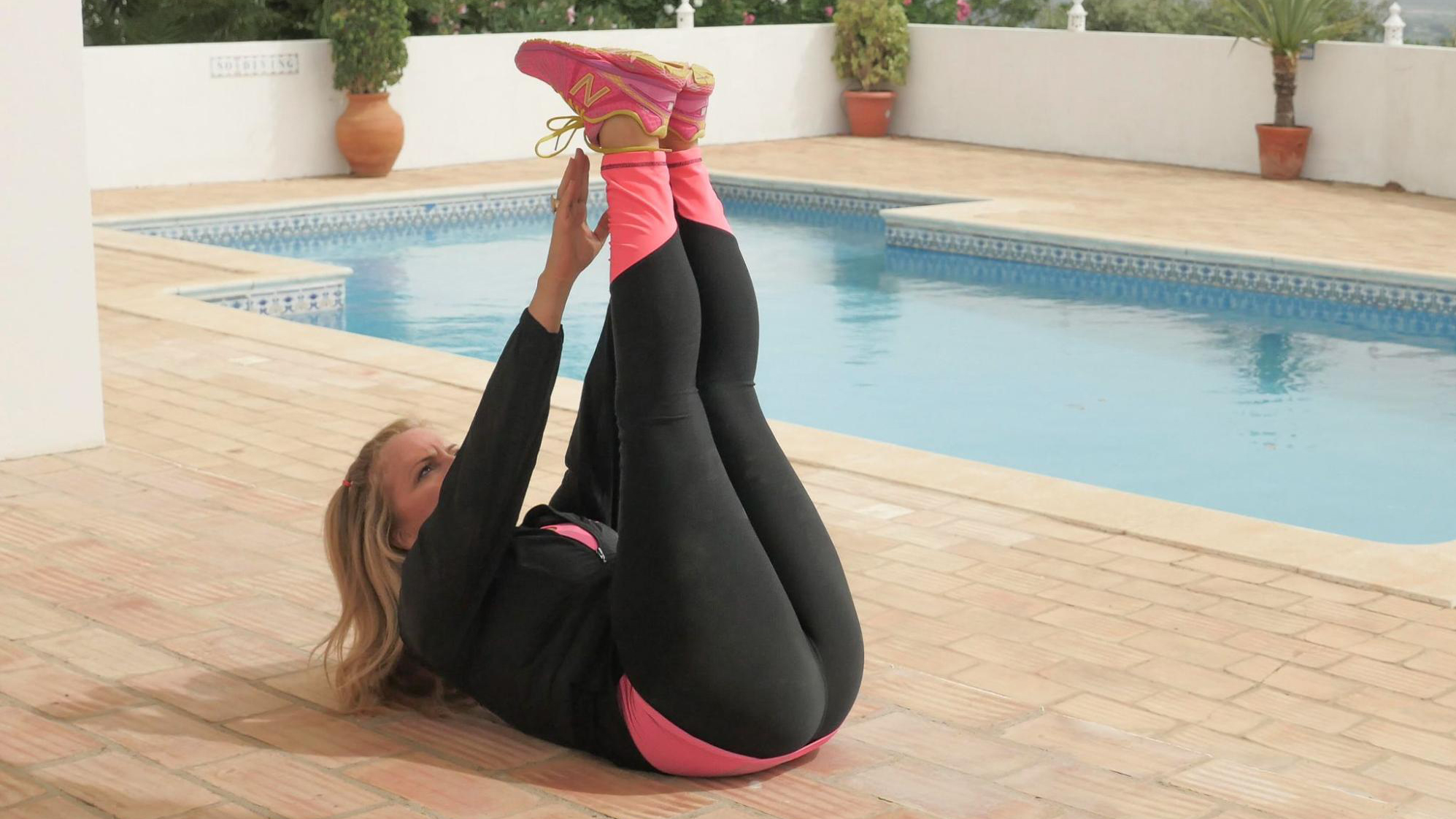
Lie on your back with your legs in the air and raise your hands up to your toes. As you move, your shoulders and head should lift up off the ground. In small pulses, reach up towards your toes, then relax your head and shoulders back down slightly. You should only be moving about one inch. Don't touch the floor with your shoulders until the exercise is finished.
7. Lunge twist
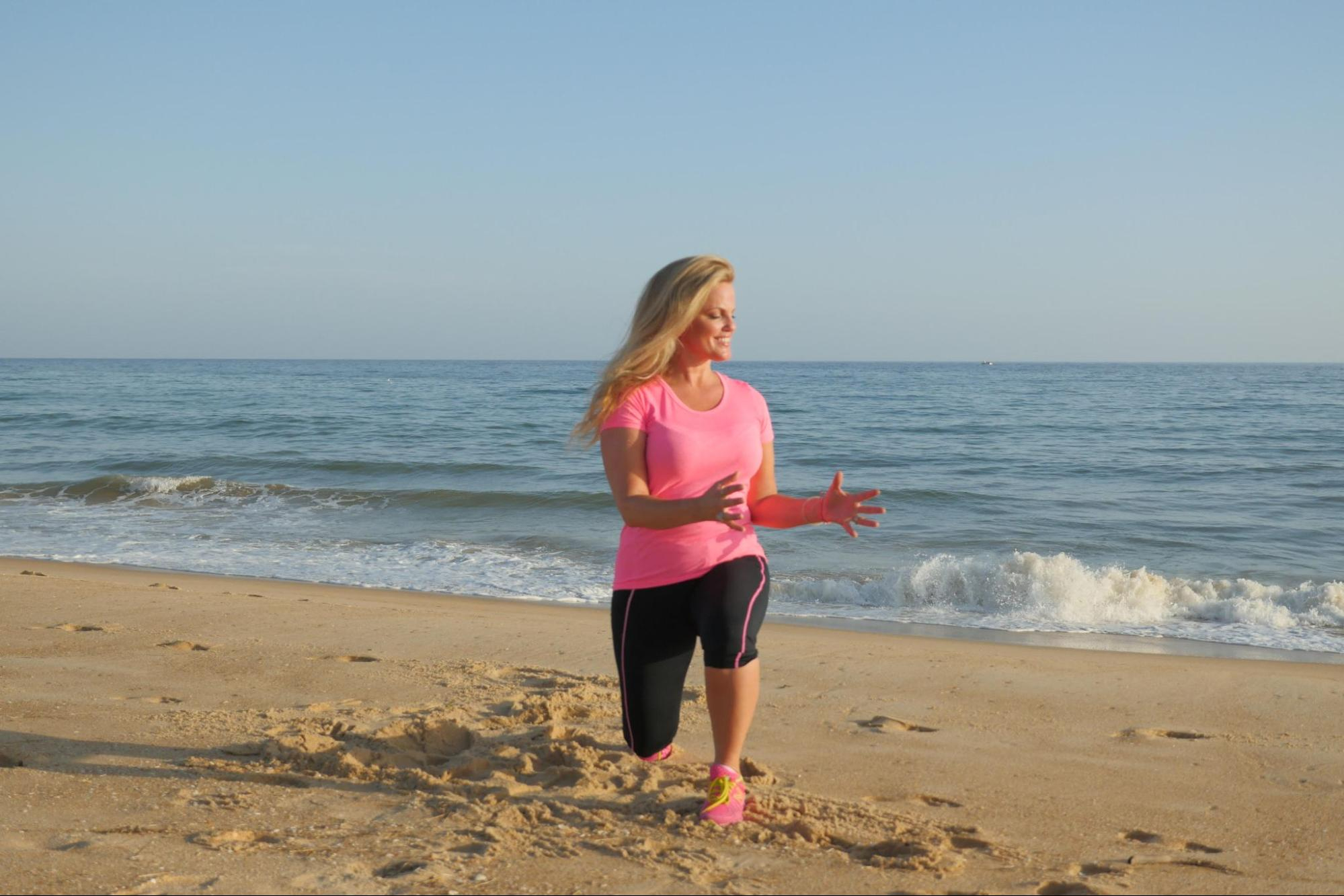
Stand with your right leg forward and left leg back in a lunge position. Twist towards the right from the waist, as if you are holding a large ball. Keep your shoulders down, back straight, abs pulled in tight. Come back to centre, switch legs and repeat.
8. Bridge
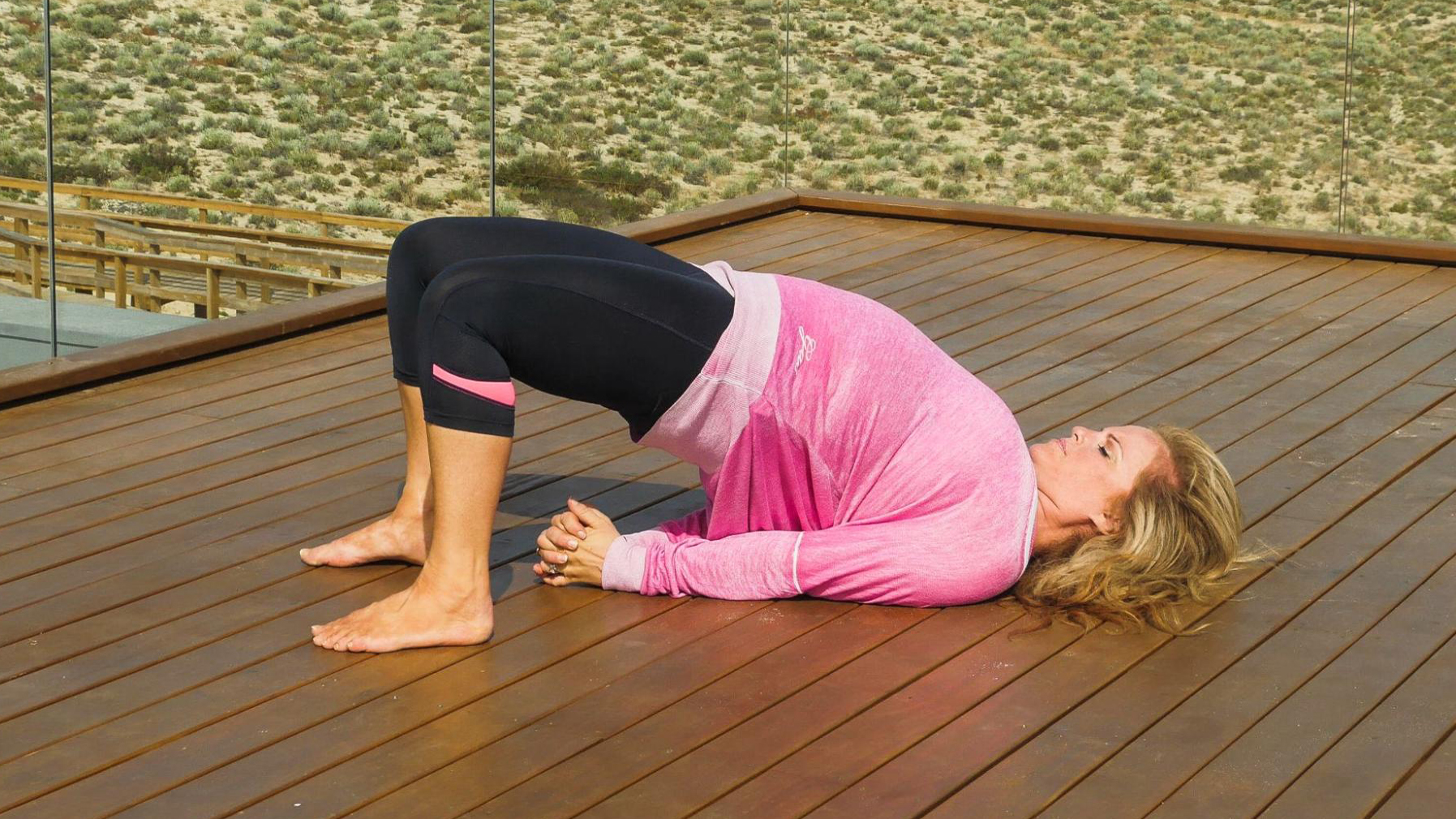
Lie on your back, with your knees bent and your feet tucked under your knees. Lift your bottom off the floor by pushing through the heels. If you are flexible enough, try to scoop your shoulders down your back and intertwine your hands beneath you.
How long should a HIIT workout for beginners be?
Your first HIIT session will be a good indicator of your fitness level. We recommend 20 minutes as a starting point, as does Wolff, but if you’re struggling to complete a 20-minute session you can try for shorter sessions or extend your rests. It’s all about listening to your body and making sure you know your limits.
“HIIT training should be performed for about 20 minutes,” “I like the Tabata style, where it is 20 seconds per exercise, with a 10-second rest, do eight exercises and repeat the eight in four rounds. It totals about 20 minutes with a warm-up, cool down and a stretch at the end.”
Should you do HIIT everyday?
20 minutes of HIIT every day may be excessive. “I would never do 20 minutes of HIIT a day. It is high intensity, and is an anaerobic exercise that you perform to exhaustion,” says Wolff. “I’d recommend, in a week, having at least one day of complete rest, and the others could be a mixture of aerobic, anaerobic, strength and flexibility. Two [sessions] a week of HIIT max.”
It’s worth balancing HIIT sessions with other forms of gentle exercise, like these yoga stretches for beginners.

Lou Mudge is a Health Writer at Future Plc, working across Fit&Well and Coach. She previously worked for Live Science, and regularly writes for Space.com and Pet's Radar. Based in Bath, UK, she has a passion for food, nutrition and health and is eager to demystify diet culture in order to make health and fitness accessible to everybody.
Multiple diagnoses in her early twenties sparked an interest in the gut-brain axis and the impact that diet and exercise can have on both physical and mental health. She was put on the FODMAP elimination diet during this time and learned to adapt recipes to fit these parameters, while retaining core flavors and textures, and now enjoys cooking for gut health.
